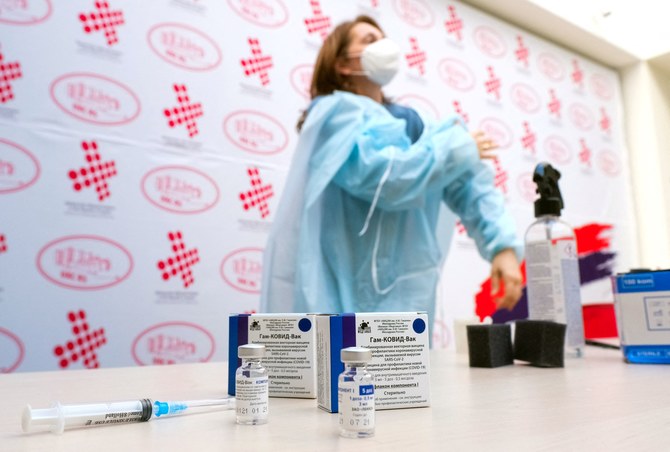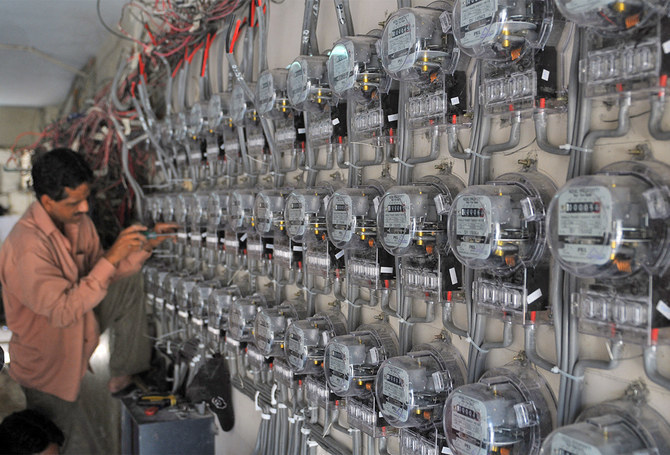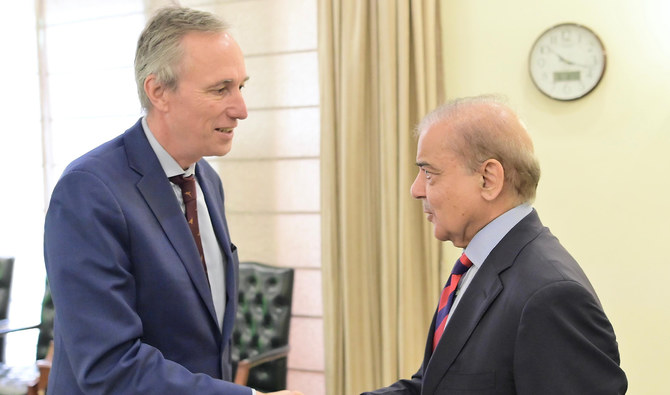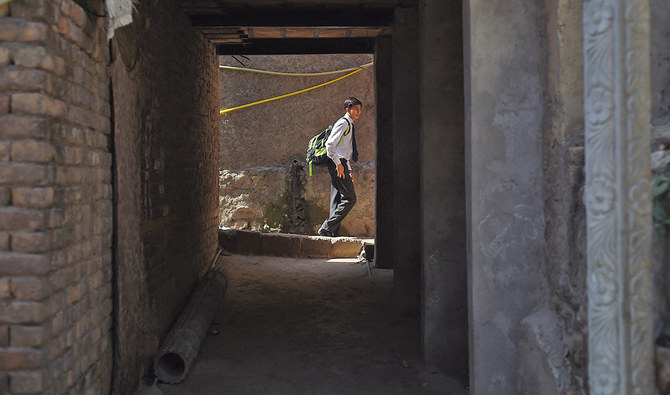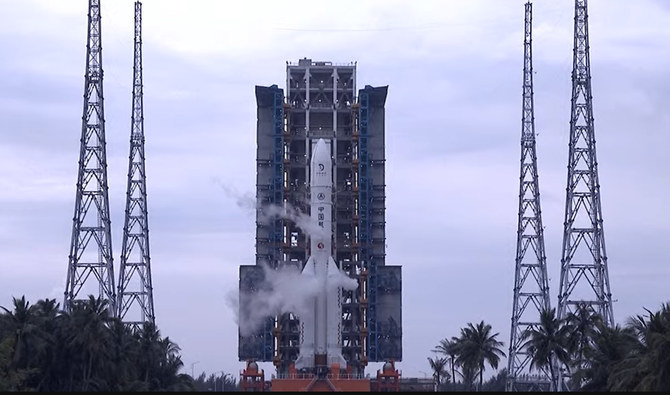ISLAMABAD: The Pakistan government will “in a day or two” announce a price cap for shots of the privately imported Russian COVID-19 vaccine, the Sputnik V, after the federal cabinet approves the price recommended by the country’s drug regulator, a top health ministry official said on Friday.
A private pharmaceutical company, AGP Limited, this week imported the first shipment of 50,000 doses of the Sputnik vaccine to Pakistan.
In February, Pakistan said it would allow private companies to import coronavirus vaccines and agreed to exempt such imports from price caps, but on Thursday the health chief said that decision was being reversed and the Drug Regulatory Authority of Pakistan (DRAP) would now recommend a price, which the cabinet would approve.
Dr. Rana Muhammad Safdar, director-general health at the Ministry of National Health Services and Regulations, said following a request from AGP Limited, a DRAP pricing committee had on Friday recommended the price tag for each dose of the vaccine and forwarded the recommendation to the federal cabinet for approval.
“DRAP has submitted a summary to fix price; that requires approval of the cabinet,” Safdar told Arab News, adding that the government would formally announce the price tag “in a day or two.”
A spokesperson for DRAP said a “robust mechanism” was in place to ensure the vaccine would only be sold at the government-fixed price.
“Let me tell you that the Sputnik vaccine won’t be available over the counter as it will be inoculated through government authorized facilities only, at a fixed price,” Akhtar Abbas, DRAP spokesperson, told Arab News.
He ruled out any possibility of the black marketing of the vaccine: “This will be available through the government authorized mechanism only, and thus absolutely no chance of any black market [deals].”
China’s Sinopharm and CansinoBio, Sputnik-V and the AstraZeneca vaccines are approved for emergency use in Pakistan, whose government hasn’t secured any vaccine from manufacturing companies yet and is relying so far on donations. The Russain vaccine that arrived in Karachi on Wednesday night is the first private batch purchased and imported by a private company.
“AGP Limited will sell the 50,000 vaccine doses to the government once its price is finalized,” Dr. Omar Javed, business unit head at AGP Limited, told Arab News, adding that Sputnik V was a two dose regimen and the 50,000 doses would be given to 25,000 adults through government authorized hospitals and institutions only.
He said the company, subject to the government’s permission, would allocate the vaccine only to institutions and hospitals that were approved by federal and provincial authorities.
“More doses will be procured at regular intervals,” Javed said.
The South Asian nation of 220 million rolled out its COVID-19 vaccination for frontline health care workers in the first week of February after receiving a donation of 500,000 doses of the SinoPharm vaccine from China. This month, it started vaccinating people above the age of 60. On Wednesday, the government received another donation of 0.5 million doses of the SinoPharm vaccine from China.
According to official data, the government has vaccinated more than 450,000 people so far across the country.
Pakistan is also expected to receive its first shipment of the AstraZeneca vaccine this month through the COVAX vaccine sharing initiative for poorer nations.



